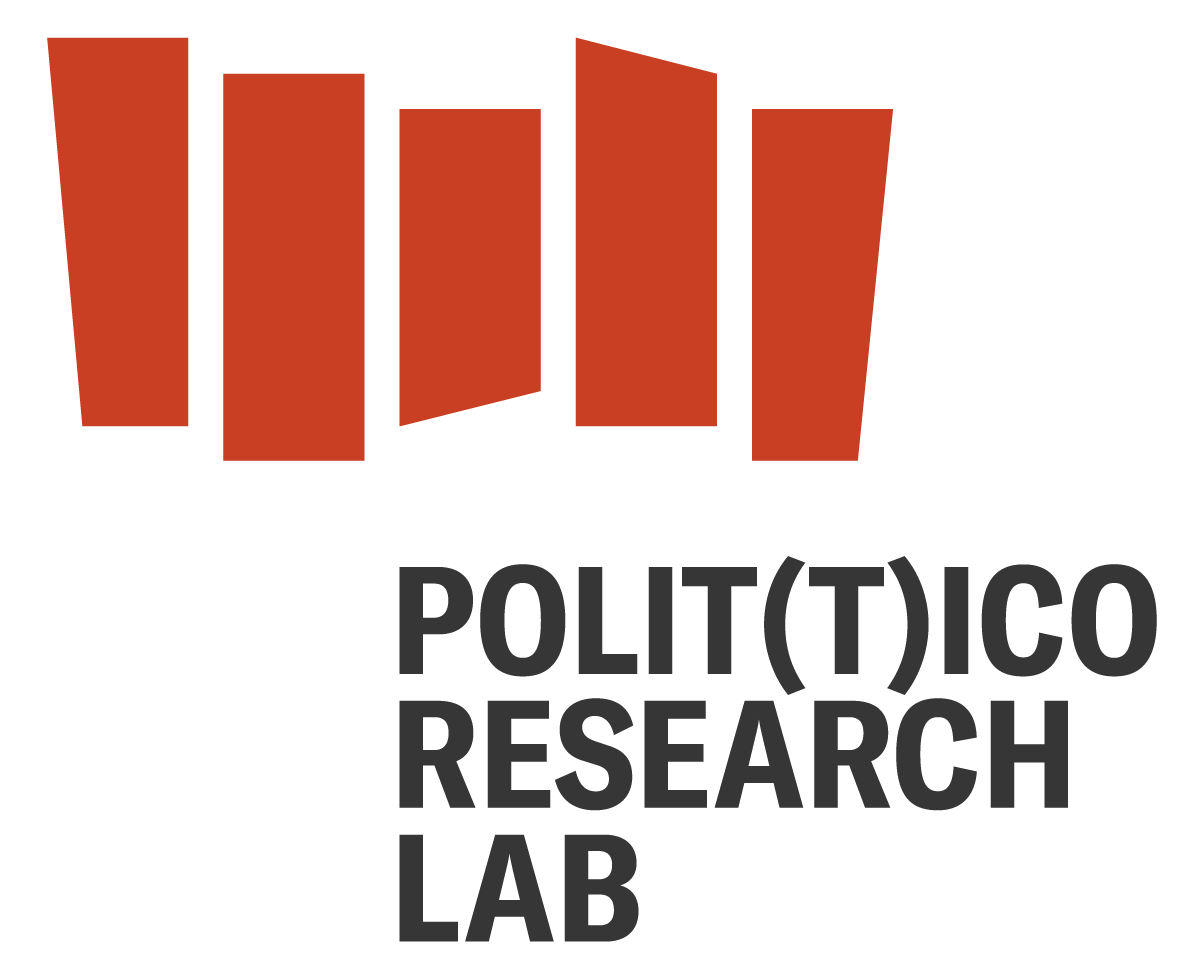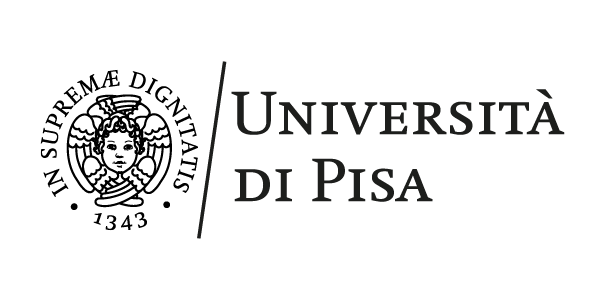POLITTICO VISITING FELLOW 2023/2024. Alicia Imperiale’s scholarly work examines the interplay between technology and art, architecture, representation, and fabrication in postwar Italian art and architecture. She authored works such as: New Flatness: Surface Tension in Digital Architecture (Birkhauser, 2000); "Seminal Space: Getting under the Digital Skin", in RE:SKIN (MIT, 2006); "Organic Italy? The Troubling Case of Rinaldo Semino", in Perspecta 43 (2010); "Organic Architecture as an Open Work", in Zevi’s Architects: History and Counter-History from Postwar to the End of the 20th Century (Quodlibet, 2018); "A prehistory of parametric architecture" (Log 44, 2018). Her book manuscript Organic Architecture as an Open Work: The aesthetics of experimentation in art, technology & architecture in postwar Italy is based upon her dissertation at Princeton University. In 2016-17 she was a Cornell University Society for the Humanities Fellow, where she conducted research for a new book Machine Consequences: Origins of Output. Her work has been supported by a Graham Foundation for Advanced Studies in the Fine Arts Research Grant.
Research Fellow in History of Contemporary Architecture at the University of Florence. He was Visiting Research Fellow at the Architecture Theory Criticism and History Research Centre of the University of Queensland (2019) and Senior Visiting Lecturer and Researcher at University College London (2021). His studies are devoted to the Italian modern and contemporary architecture in a global perspective, with special attention to cultural migrations and labour organization strategies. His research has been discussed in international conferences and recently published in the edited books Post-war Architecture Between Italy and the UK. Exchanges and Transcultural Influences (University College London Press, 2021) and Largest Architectural Firms. Design Authorship and Organization Management (Edifir, 2021). He is currently working on a book about Vittorio Gregotti, seen as a leading figure in the process of internationalization of Italian post-war and contemporary architectural discourse, between history, politics, design culture and professional organizations.
His contribution to Polit(t)ico:
Pickard Chilton Professor of Architecture, he is Director of Graduate Education in the department of architecture at Iowa State University. His teaching, writing and research addresses the political-economic uses of architecture, the critique of theory and the theory of critique, and the image work of landscape in its historical and contemporary contexts. He has previously taught at the Architectural Association, London, The University of Westminster and the Royal College of Art.
Spencer is the author of the critically acclaimed and widely-cited The Architecture of Neoliberalism (Bloomsbury Academic, 2016), and Critique of Architecture (Bauwelt Fundamente/Birkhäuser, 2021). He is currently researching and writing his third book, Architecture and the Ends of Capitalism: Scenes from a Crisis, to be published by Bloomsbury academic in 2025, and is co-editing a forthcoming essay collection on architecture, labour, and class critique.
His essays have been widely published. Spencer has also contributed chapters to many significant collections, including Against the Post-Political (Routledge, 2014), This Thing Called Theory (Routledge, 2016), Landscape and Agency (Routledge 2016), On Power in Architecture (Maska, 2022).
His contribution to Polit(t)ico:
Full professor at the École d’architecture, Université de Montréal, she taught at the schools of architecture of Princeton University, Cornell University, Pratt Institute New York, the ETH Zurich, and at the Istituto Universitario di Architettura di Venezia. Since 2008 she has been responsible for the conception and organization of the Phyllis Lambert International Seminar, colloquia held at the Université de Montréal, addressing current topics in landscape and architecture. She curated the exhibition Total Environment: Montreal 1965-1975 (Canadian Center for Architecture, Montreal, 2009) and collaborated to the exhibition and catalogue God & Co: François Dallegret Beyond the Bubble (with Laurent Stalder and Thomas Weaver, London: Architectural Association Publications, 2011). She has published extensively including a collection of essays on North American landscapes titled The House of Light and Entropy (London: AA Publications, 2014). She contributed to the Canadian Pavilion at the Venice Biennale Architecture in 2014 (Arctic Adaptations) and 2016 (Extraction). Since 2021 in cooperation with master students and collaborators, she has conducted research on information technologies and architecture. The research work has been collected in two volumes titled Architecture/Territoire/ Information 4.0 (2021, 2022).
Her contribution to Polit(t)ico:
Professor of Architectural Theory and director of the Manchester Architecture Research Group (MARG) at the Manchester Urban Institute. She has been Visiting Professor at Princeton School of Architecture (2013), Parsons, New School (2015) and Politecnico di Torino (2018). She held the prestigious Lise Meitner Visiting Chair in Architecture at the University of Lund, Sweden (2017-2019). Her research is intrinsically transdisciplinary and crosses the boundaries of science studies, cognitive anthropology, architectural theory and political philosophy. She is the author of several books: The Making of a Building (Peter Lang 2009), Made by the OMA: An Ethnography of Design (010 Publishers 2009), Mapping Controversies in Architecture (Routledge 2012), Five Ways to Make Architecture Political. An Introduction to the Politics of Design Practice (Bloomsbury 2017), Crafting History: Archiving and the Quest for Architectural Legacy (Cornell University Press2020), The New Architecture of Science: Learning from Graphene (World Scientific Publishing 2020), co-authored with Sir Kostya S. Novoselov (Nobel Laureate in Physics), Latour for Architects (Routledge 2022) and Architecture After Covid (Bloomsbury 2023). She is also the editor (with Alejandro Zaera-Polo) of What is Cosmopolitical Design? (Routledge 2015). Her work has been translated into German, Italian, Spanish, French, Portuguese, Thai, Polish, Turkish and Japanese. Yaneva is the recipient of the RIBA President's award for outstanding university-based research (2010).
Her contribution to Polit(t)ico:
Editor, writer, teacher, and curator, she is executive director of the nonprofit Anyone Corporation, an architecture think tank in New York City that produces Log, the critical architecture journal she founded in 2003. She is also editor of more than 40 books in print, including two for the Aga Khan Award for Architecture and 25 in the Writing Architecture series, which includes titles by Mario Carpo, Pier Vittorio Aureli, and Giuliana Bruno, published by MIT Press. Cynthia co-curated, with Mónica Ponce de Léon, “The Architectural Imagination,” an exhibition of ideas for Detroit shown in the US Pavilion at the 2016 Venice Architecture Biennale, and was chief curator of “Model Behavior,” a 2022 exhibition shown at The Cooper Union in New York in 2022. Cynthia also teaches writing in graduate architecture programs at Cornell and Princeton universities and the Pratt Institute.
Her contribution to Polit(t)ico:
Curator and writer, he recently funded Radicants, a curatorial cooperative producing exhibitions worldwide. He was the Director of the MO.CO- MontpellierContemporain, he founded and Codirected the Palais de Tokyo, Paris, (1999 -2006). As an independant curator, he was part of the curatorial team of Aperto 1993 at the Venice Biennial, and organized many international exhibitions, from «Traffic» (Capc Bordeaux, 1996) to the more recently «Planet B. Climate change and the new sublime» (Venice, 2022). He also curated several biennials, including Lyon (2005), Moscou (2005 and 2007, with Rosa Martinez, Daniel Birnbaum, Joseph Backstein, Hans-Ulrich Obrist and Iara Boubnova), and «The 7th continent» (Istanbul biennial 2019). His theoretical essays include «Relational Aesthetics» (1998), «Postproduction» (2002), «Radicant» (2009), «The Exform» (2015) and «Inclusions. Aesthetics of the capitalocene» (2021/Sternberg Press, 2022).
His contribution to Polit(t)ico:
Architect and George Dutton ’27 Professor of Architecture at Princeton University. In 1991 he established an independent practice, and since that time, has pursued parallel careers as architect, educator and writer. He served as Dean of the School of Architecture at Princeton from 2002 – 2012. His practice SAA/Stan Allen Architect has realized buildings and urban projects in the United States, South America and Asia. Since 2008, he has received a number of awards for his work. His architectural work is published in “Points + Lines: Diagrams and Projects for the City” and his essays in “Practice: Architecture, Technique and Representation”. His most recent book is “Situated Objects”, published by Park Books.
His contribution to Polit(t)ico:
Joseph Bedford is an Associate Professor of History and Theory at Virginia Tech. He is the director of the Architecture Exchange, a platform that fosters discourse and exchange in architecture through podcasts, conferences, books, workshops, oral history projects and teaching resources.
Full Professor of Design in the Faculty of Architecture at Sapienza University of Rome. Dean of the Faculty of Architecture since 2020. Coordinator of the Doctorate in Architecture Theories and Design and Director of the Doctorate School in Architectural Sciences, he directs the laboratory ArCo (Architecture, Art and Contexts). Member of the Selection Committee in the CiAUD Research Seminar. Former member of the INARCH Lazio scientific committee. He has participated in design competitions and he achieved prizes and reports. His projects and writings appear on national and international magazines.
His contribution to Polit(t)ico:

